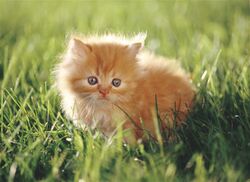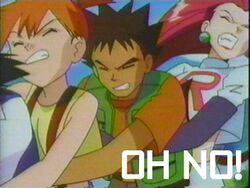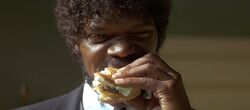Double Entendre
“Well, she did ask....”
“A fine example of a 'shining wit', or something similar”
“Touche! A "cunning stunt", once again....”
“I don't know what double entendre means...can anyone fill me in? Ooh matron!”
A subspecies of the genus Pun and distantly related to the Innuendo, a Double Entendre is distinguished by its extra length and added girth. Found throughout the heaving metropolii of Europe through to the damp, dark bushy forests of South America, the Double Entrendre has even made recent thrusts into North America. This article seeks to explain the unpenetrated depths of this fascinating subject; if there are any unintentional misunderstandings of the true meaning, I hope you won't hold it against me.
Satire and the Growth of Political Humour
It has been well documented that lesser forms of humour, such as Satire and Mime have long looked with distain upon highbrow humour such as Double Entendres and Slapstick. In the 16th century, metaphysical scholar Sir Alanis Morissette (in her definitive work "Misconceptions on Irony") claimed that the Double Entendre is "the climax of human comedic experience".
Up until the early 20th Century the common or garden Double Entendre, as well as the lesser known but cruder Single Entendre, were seen as the foremost formulae for the spreading of humourous ribaldry, and other humour-related diseases. Both were utilised with great flare and expertise in such comedic epics as Jonathan Swift's satirical masterpiece "A Modest Proposal" and the biting political witticisms of Fyodor Dostoevskys Weekend At Bernie's 3: Bernie's Revenge.
With the advent of radio and the popularity of their pioneering ventriloquist shows, the use of the Double Entendre was reduced, and its precedence as the premier comedy form became diminished. The birth of television continued its fall from grace; and by the mid 1960s the art had all but died out. Some small pockets of the tradition do remain, however, lodged in deep crevasses.
Examples of Double Entendres
As the sole comedic device for British sitcom Script Writers, the Double Entendre remains a much loved, if slightly archaic, institution amongst English speaking peoples everywhere, and Americans.
Prime examples would include:- (Usually Sexual References)
- "This bush is in need of a trim, I can hardly see your prize clematis, Mrs Windthrop" - Carry On Up The Garden Path (1968)
- "If I Said You Had a Beautiful Biggles, Would You Hold It Against Me?" - Bellamy Brothers (1976)
- "What an impressively large organ, Vicar, I have never seen one with a pipe that long before" - Noel Cowards Tour of Pastoral Britain (1978)
- "We took some pictures of the native girls, but they weren't developed" - Rufus T Firefly (1930)
- "Ee Gad! I floored the attacking natives with several quick blows" - The Colonel In Darkest Africa (1918)
- "It's no good, Boss! Eliot Ness has fingered us!" - Al Capone's Touchables (1936)
- "The Farmer in the next village has a magnificent cock." - Jane Austen (1822)
- (The Farmer's Wife's Got A Four Inch Crack In Her, But She Ain't) Broken The Wurzels (1977)
Department of Standards & Practices
During the 1940s, the leading Television Networks and Film Broadcasters met to form a committee whose sole purpose is in "keeping fun and interesting ideas away from the viewing pubic public". This latest crackdown on smutty humour has proven to be a hard one to handle.
Double Entendres have often been utilised in an effort to navigate the issue of the "Seven Words You Can Never Say On Television", which are defined as:
- Shit (suggested replacement: Shiite!)
- Piss {suggested replacement: Pimp!}
- Fuck {suggested replacement: Fiddlesticks!}
- Cunt {suggested replacement: Cunt!}
- Cocksucker {suggested replacement: Cork Soaker!}
- Motherfucker {suggested replacement: Melon Farmer!}
- Biggles {suggested replacement: Tit Wank!}
Many have suggested that this is the end for the double entendre, and a sticky one at that. But members of the throbbing underbelly of society are thought to be blowing new life into this once mighty genre.
Hitting the Fan
Titillation has always being a part of our entertainment industry, matched only perhaps by the care and welfare for animals; from the works of Edward Lear's "O lovely Pussy, O Pussy, my love, what a beautiful Pussy you are", to the infamous Pussy Song of Vaudeville fame: -
- Would you give me the tip of it, the tip of it, the tip of it,
- Would you give me the tip of it, the tip of it, the tip of it,
- Because I've got a pussy cat,
- Because I've got a pussy cat,
- Who hasn't eaten that, that, that!
Efforts to bring the art of the Double Entendre to a satisfactory conclusion have so far failed miserably, though vigorous efforts from authorities in rugged leather gear have allowed them to "snatch a handful" of perpetrators. Chief Prosecutor Betty Swallocks is said to hold a number of them, under new emergency measures, as part of the international War on Humour. As the movement of Anti-Humour takes root, grows and takes a firmer grasp on our comedy culture, outbreaks of Rogue Punchlines are on the increase.
The future of the Double Entendre is in your hands. In order to learn more about how you yourself can wield this awesome power, please consult HowTo: Double Entendre.
| Featured version: 27 September 2008 | |
| This article has been featured on the main page. — You can vote for or nominate your favourite articles at Uncyclopedia:VFH. | |






